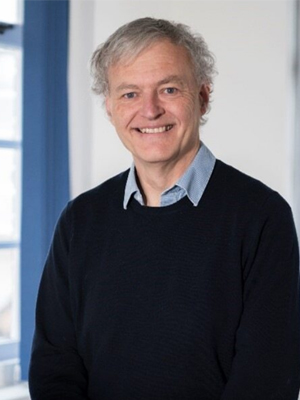 |
Professor Douglas Easton
Professor of Genetic Epidemiology and Director of the Centre for Cancer Genetic Epidemiology
University of Cambridge
Biography
Professor Douglas Easton is a statistician and genetic epidemiologist with a specific interest in the genetics of hormone related cancers. He graduated in mathematics from the University of Cambridge. Since 1995 he has been Director of the Centre for Cancer Genetic Epidemiology in Cambridge. His research uses methods of genetic analysis in large-scale population and family studies to identify and characterise genetic variants that predispose to cancer, and to understand how they combine together with other factors to determine cancer risk. His work has characterised many of the important cancer predisposition genes including BRCA1, BRCA2, ATM and CHEK2. His studies have also led to the identification of hundreds of common cancer predisposition variants in the non-coding genome and the development of genetic risk scores. Much of his work been achieved through international collaboration, particularly through leadership of the Breast Cancer Association Consortium involving more than 100 groups worldwide. He co-developed the BOADICEA risk prediction model, implemented in the CanRisk tool and used worldwide to guide genetic counselling and cancer prevention strategies. He was elected Fellow of the Royal Society in 2022.
|
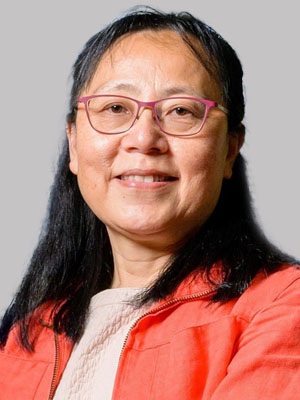 |
Prof. Xin Lu
Director
Ludwig Institute for Cancer Research, University of Oxford
Biography
Prof. Xin Lu is a Professor of Cancer Biology at the University of Oxford. The main goal of Prof. Xin Lu and her team's research is to identify molecular mechanisms that control cellular plasticity and suppress tumour growth. Cells are able to change their characteristics and cell fate in response to external signals. This ability to change – cellular plasticity – underlies cancer initiation, metastasis and resistance to therapy. We are particularly interested in ‘guardians’ of plasticity in epithelial cells, from which over 80% of human tumours originate. They have a long-standing interest in the tumour suppressor p53 and the ASPP family of proteins (Apoptosis-Stimulating Protein of p53; Ankyrin repeats, SH3 domain and Proline rich sequence containing proteins), which have several roles including regulation of p53. Prof. Xin Lu's current areas of interest include: understanding how selective transcription is controls cell fate; identifying regulators of cellular plasticity in upper gastrointestinal cancer initiation and metastasis (particularly oesophageal cancer and gastric cancer); and understanding the influence of infection on cell plasticity and cancer (particularly Helicobacter pylori and Epstein Barr Virus (EBV) infection).
|
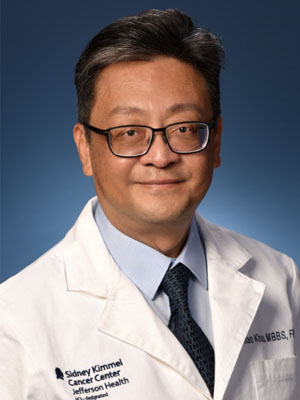 |
Dr. Alan Khoo Soo Beng
Dr
Department of Medical Oncology, Sydney Kimmel Medical College, Thomas Jefferson University, United States
International Medical University Malaysia
Biography
Dr Alan Khoo is the Senior Project Manager and Scientific Advisor for the T-cell Lymphoma and Leukemia Initiative at the Department of Medical Oncology, Sydney Kimmel Medical College, Thomas Jefferson University in Philadelphia, PA, United States. He is an Adjunct Professor at the International Medical University, Bukit Jalil, Kuala Lumpur, Malaysia. He is a resource person for the Sarawak Biodiversity Centre, Kuching, Sarawak and had served as an independent ad hoc consultant to the Industry in Malaysia and the United States. He was formerly the Head of the Cancer Research Centre at the Institute for Medical Research, National Institutes of Health, Ministry of Health Malaysia, Adjunct Professor at Taylor’s University and Adjunct Professor at the Swinburne University of Technology Sarawak Campus, Kuching, Sarawak.
Dr. Khoo is a medical doctor who had received training in public health, paediatrics, as well as cell biology and genetics. He is a Fellow of the Royal College of Physicians of Edinburgh, Fellow of the Academy of Medicine Malaysia and Fellow of the Royal Society of Biology.
He provides scientific advisory for translational cancer research and oversees research involving studies on real world evidence using electronic health records and federated databases. He has a special interest in in viral associated cancers and had been involved in translational research on nasopharyngeal carcinoma, a cancer common in Asia which is associated with Epstein-Barr Virus.
|
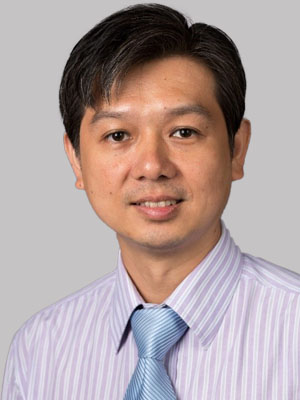 |
Prof. Tan Geok Chin
Professor Dr
Universiti Kebangsaan Malaysia
Biography
Dr Tan Geok Chin is a Professor of Pathology, and Consultant Anatomical Pathology at Faculty of Medicine. He received his training in anatomical pathology in the National University of Malaysia and subsequently received his PhD degree at Imperial College London where he studied the characteristics of microRNA isomers in Stem Cells. His work lead to the discovery of isomiRs with functional and evolutionary importance and it was published in Nucleic Acid Research (IF:11.561). He completed the Paediatric Pathology Fellowship training in Nationwide Children’s Hospital, Columbus, Ohio, USA. He is currently a member of the medical ethics committee in UKM and the Editor-in-Chief of the Malaysian Journal of Pathology. He has received multiple excellent service awards (2007 and 2019), including Best article award from Medical Journal of Malaysia and Best Poster Award from Royal Society, Edinburgh. He is a fellow of the Academy of Medicine Malaysia and holds a number of positions in the College of Pathologists and Malaysia Medical Council. He is a member of the credentialing committee of Anatomical Pathology, MMC. He is a member of the education committee and continuous professional development (CPD) committee of the CPath, AMM. He is the treasurer of the Chapter of Perinatal and Paediatric Pathology, CPath. He is a member of Perinatal and GUT Research Groups. His current research interest is in Paediatric and Perinatal Pathology, with a number of on-going projects, namely gene expression of hydatidiform mole, chorioamnionitis and its correlation with neonatal outcomes, and GUT microbiome of neonates.
|
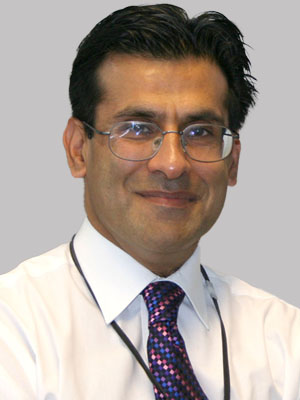 |
Prof. Mohammad Ilyas
Professor
University of Nottingham UK
Biography
Professor Mohammad Ilyas is a Professor of Pathology and Honorary Consultant at the University of Nottingham. He studied medicine at Bristol University, obtained his DPhil at Oxford University in Sir Walter Bodmer’s lab and is a fellow of the Royal College of Pathologists. He was deputy director of the Nottingham Molecular Pathology Node and for 10 years he was a member of the Medical Technology Advisory Committee. Prof Ilyas’s diagnostic practice is centred on Gastro-intestinal Pathology and his research covers both technical developments and knowledge discovery mainly in the area of colorectal cancer. He also runs the Nottingham Molecular Diagnostics Training School, the Image Analysis Training School and the GI Masterclass.
|
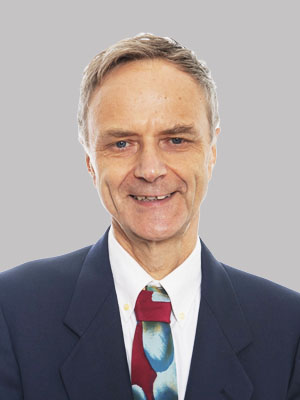 |
Dr. Herbert Schwarz
Associate Professor
National University of Singapore
Biography
Herbert Schwarz is an Associate Professor in the Immunology Translational Research Programme at the National University of Singapore. Dr. Schwarz received his Ph.D. in Genetics at the University of Würzburg, Germany, in 1989. After a postdoc at the Scripps Research Institute in San Diego, CA, he joined the University of California, San Diego, in 1991, where he cloned the human gene for CD137 (TNFRSF9, 4-1BB). In 1994 he moved to the University of Regensburg, Germany, where his group discovered and characterized many functions and aspects of the CD37 biology. Between 1999 and 2004, Dr. Schwarz headed the Cellular Immunology Dept. at Xenova, Inc., in Cambridge, UK, and the Preclinical Research Dept. at Pieris Proteolab in Freising, Germany. During his time in Biotech industry Dr. Schwarz was responsible for the preclinical research and development of several drug candidates for immunotherapy of cancer and autoimmune disease. Dr. Schwarz joined NUS in 2004, where his group is exploring the role of CD137 in anti-tumor immune responses and in neuroinflammation. Dr. Schwarz demonstrated the powerful activity of CD137 Ligand as an adjuvant for vaccines against infectious disease and hopes to extend that to vaccination against cancers.
|
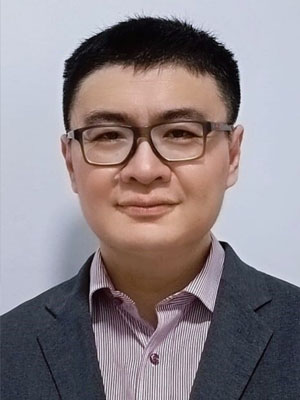 |
Dr. Pei Jye Voon
Head and Consultant Medical Oncologist
Department of Radiotherapy and Oncology, Hospital Umum Sarawak (Sarawak General Hospital)
Adjunct Professor
Universiti Malaysia Sarawak (UNIMAS)
Biography
Dr Voon Pei Jye is the Head and Consultant Medical Oncologist, Department of Radiotherapy and Oncology, Hospital Umum Sarawak (Sarawak General Hospital). He is also an Adjunct Professor Universiti Malaysia Sarawak (UNIMAS). He obtained his MRCP (UK) and Master of Medicine (Internal Medicine) from National University of Singapore in 2007. Subsequently, he received his advanced specialist training in Medical Oncology from National University Hospital Singapore. He has completed his Phase 1 Drug Development clinical research fellowship at Princess Margaret Cancer Centre, University of Toronto, Canada.
He is an active investigator for numerous cancer trials encompassing early phase through to late phase studies. He has keen interest in oncology development therapeutic and thoracic oncology. Dr Voon has published in various peer reviewed journals. He is a recipient for Hold’em for Life Oncology Fellowship Award, University of Toronto. He has also won the Scholar Training Award from AACR-NCI-EORTC International Conference on Molecular Targets and Cancer Therapeutics 2021.
|
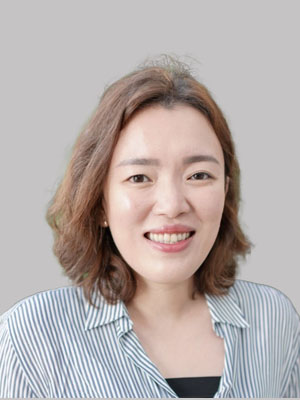 |
Dr. Weang Kee Ho
Associate Professor
University of Nottingham Malaysia
Biography
Dr. Weang-Kee Ho is an Associate Professor at the School of Mathematical Sciences, University of Nottingham Malaysia, and a Visiting Scientist at Cancer Research Malaysia. Her research focuses on identifying the genetic and lifestyle determinants of non-communicable diseases. Funded by the Wellcome Trust and the MRC-ASM Newton-Ungku Omar Fund, Dr. Ho’s team builds breast cancer risk assessment tools for multi-ethnic Asian populations, integrating lifestyle factors, genetic information, and mammogram images. Additionally, supported by the Basser External Research Grant Program, Dr. Ho’s team conducts research on the identification of lifestyle and genetic modifiers of cancer risk in BRCA1 and BRCA2 mutation carriers of Asian ancestry. Collaborating with academic and industry partners, the team also conducts studies to determine women’s health screening behaviour and cost-effective screening strategies in the context of low- and middle-income countries. Dr. Ho is a statistician by training and has been awarded the Loreal-UNESCO for Women in Science National Fellowship in 2018, the Loreal-UNESCO International Rising Talent award in 2019, and the Wellcome Trust Career Development Award in 2023.
|
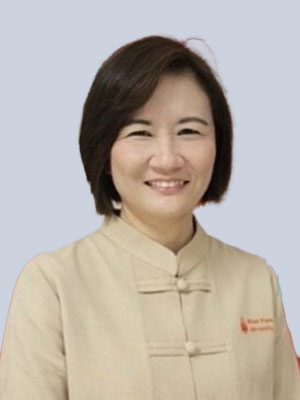 |
Dr. Kulthida Vaeteewoottacharn
Associate Professor
Department of Biochemistry, Faculty of Medicine, Khon Kaen University, Thailand
Biography
Dr. Kulthida's current research is focusing on the targeted treatment for infection- and inflammation-related cancers. The patient-derived cancer cell lines and patient-derived xenograft animal models for drug screening are developed to fulfill the research needs.
|
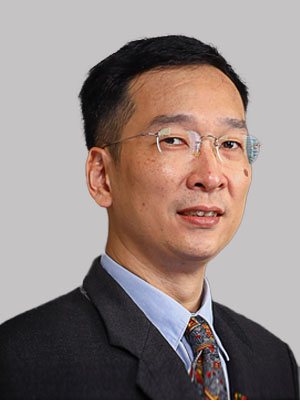 |
Dr. Tan Cheng Siang
Associate Prof Ts Dr
Faculty of Medicine and Health Sciences, Universiti Malaysia Sarawak
Pink and Teal EmpowHer (NGO)
Biography
Dr. Tan Cheng Siang is a virologist specialising in One Health and vaccine-preventable diseases, with a research focus on Human Papillomavirus, enteric viruses (including Rotavirus and Norovirus), and zoonotic coronaviruses. His goal is to generate and share local genomics and epidemiological data for global consumption.
|
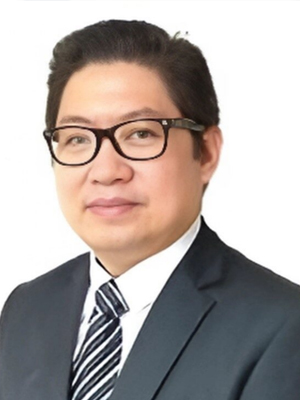 |
Professor Dr. Edmund Sim Ui Hang
Faculty of Resource Science and Technology, Universiti Malaysia Sarawak (UNIMAS)
Biography
Professor Dr. Edmund Sim Ui Hang is a distinguished academic at the Biotechnology Programme, Faculty of Resource Science and Technology, Universiti Malaysia Sarawak (UNIMAS). With a career spanning three decades, he began as a tutor in 1994 and advanced through the ranks to become a full Professor in 2019. A Genetics graduate from the University of Malaya, he earned his PhD from the University of Queensland in 2000. Professor Sim's contributions to academia are profound, having developed Bioinformatics and Medical Biotechnology courses and taught extensively in Molecular Biology and Biotechnology. He has supervised 129 undergraduate and 29 postgraduate students, highlighting his commitment to mentorship. His research focuses on Cancer Genetics, particularly the molecular biology of nasopharyngeal cancer. Over 28 years, he has published 192 academic papers and led numerous funded research projects, garnering over RM 4.5 million in grants. His innovative work has earned him accolades like the Innovation Spotlight Award in 2024. Nationally, he serves on key committees, influencing research policies and education standards. His leadership roles at UNIMAS include Head of Molecular Biology Department, Deputy Dean, and university Senate committee member. Currently, he chairs the University Animal Ethics Committee and is the Chief Editor of the Scopus-indexed Borneo Journal of Resource Science and Technology.
|
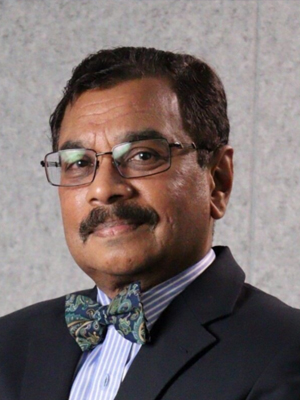 |
Prof Dr Pathmanathan
Subang Jaya Medical Centre, Subang Jaya
Biography
Dr Pathmanathan graduated with MBBS from the University of Malaya in 1978. He excelled in Pathology, securing a distinction for his postdoctoral thesis. He served as Professor of Pathology in the Faculty of Medicine, University of Malaya as Deputy Dean of Postgraduate, before leaving for the private sector in 1998. He is currently Senior Consultant Pathologist and Laboratory Director in the Subang Jaya Medical Centre, Subang Jaya, Professor of Anatomical Pathology in the Tan Sri Jeffrey Cheah School of Medicine, Monash University, and Honorary Professor of Pathology in the Faculty of Medicine, University of Malaya. Dr Pathma is an examiner in Pathology for the local Master's degree and an examiner for the Royal College of Pathologists, Australia. He is an established researcher with more than 270 scientific publications in international and peer-reviewed journals. His current research areas are in the molecular pathology of cancers, telepathology and digital imaging.
|
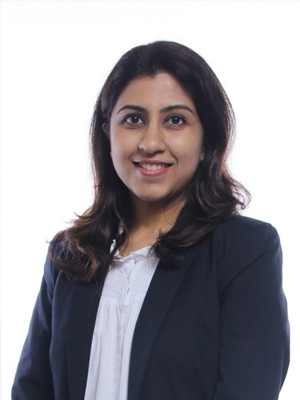 |
Dr Maalini Krishnasamy
Thomson Hospital
Biography
Dr Maalini is an experienced anatomic pathologist who has worked and trained in various tertiary hospitals in Malaysia. She completed her masters in pathology from UPM in 2017. Further pursued her fellowship training on Gastrointestinal and Hepatobiliary Pathology at Medical University of Graz, Austria. She has vast experience in reporting various surgical pathology and cytology cases with special interest in Inflammatory Bowel Disease. She is also a member of International Academy Pathology, Malaysia and is actively involved in publications, research and presentations.
|
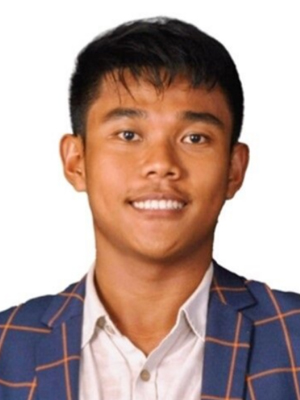 |
Mr. Bienvenido Cabaro III
Philippine Cancer Center
Biography
Mr. Bienvenido Cabaro III is a Supervising Health Program Officer at the Philippine Cancer Center under the Department of Health. He spearheads cancer research initiatives, data management, and cancer registry systems, including the Hospital-based Cancer Registry and National Cancer Data Repository. He is instrumental in policy development and planning for the PCC Research Facility, encompassing its data center and laboratories. Beyond his DOH responsibilities, he serves as a Biostatistics and Research Consultant for several hospitals in Metro Manila. Mr. Cabaro’s prior roles include key positions at the DOH Health Facility Development Bureau and the World Health Organization, where he managed data analysis, database systems, and technical assistance for health facility planning and the COVID-19 response. He also worked as a Biostatistician at Pharmaceutical Product Development, Inc., contributing to statistical analyses and clinical trial planning. A graduate of the University of the Philippines, he holds a Bachelor of Science in Statistics and Master of Science in Public Health majoring in Biostatistics. He has also completed training in Monitoring and Evaluation, IT Governance, and Data Interoperability. His expertise in data-driven decision-making, research, and public health policy supports his commitment to improving healthcare outcomes and advancing evidence-based planning.
|
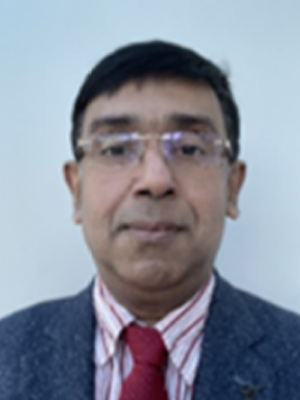 |
Dr Abhik Mukherjee
University of Nottingham UK
Nottingham University Hospitals
Biography
Dr Abhik Mukherjee is a Clinical Associate Professor (Honorary Consultant and clinical team lead in GI/HPB pathology) at Nottingham University and Nottingham University Hospitals NHS Trust. He regularly reports and presents at luminal GI and hepatobiliary multi-disciplinary meetings and engages in relevant cancer pathways, regionally and nationally. He studied Medicine and trained in Radiation Oncology at Calcutta University; and completed an MSc and PhD in Oncology from the University of Nottingham. He subsequently trained in Histopathology at Leicester and Nottingham, where he was an NIHR Academic Clinical Fellow and Lecturer and attained his FRCPath (Histopathology) by exam in 2015 . His research interests are molecular/computational characterisation of lympho-vascular invasion in cancers, and biomarkers in inflammatory bowel disease. He holds/has held project grants from Innovate-UK/MRC, Bowel Research UK, Cancer Research UK, Academy of Medical Sciences and the Pathological Society; and has had the privilege of working on prestigious collaborative projects, [METABRIC: Molecular Taxonomy of the Breast Cancer International Consortium], clinical trials [NEOTANGO, SCOTROC /TRANSCOTROC], and industry-partnered image analyses/computational pathology initiatives [NPIC: Northern Pathology Imaging Collaborative, UK, Optimata, Israel, and Barco, Belgium]. He was co-lead on the MRes in Molecular Pathology for the Nottingham Molecular Pathology Node. Currently, he is the chair of the Education subcommittee of the Pathological Society of Great Britain and Ireland and was deputy chair of the erstwhile NCRI Clinical Trials Pathology Advisory Group.
|
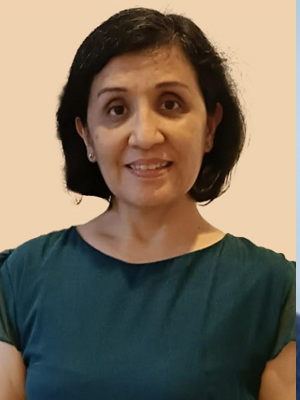 |
Dr Susanna Hilda Hutajulu
Universitas Gadjah Mada
Biography
Dr Susanna Hilda Hutajulu, MD, PhD, Internist, Consultant of Hematology and Medical Oncology, is an education staff at the Division of Hematology and Medical Oncology, Department of Internal Medicine, Faculty of Medicine, Public Health and Nursing, Universitas Gadjah Mada, and clinical staff in Dr Sardjito General Hospital, Yogyakarta. At present, Dr Susanna is an executive committee in the Yogyakarta cancer registry, editor in chief in Acta Interna: The Journal of Internal Medicine, and the coordinator of Cancer registry in the Indonesian Society for Oncology. Dr Susanna has been proactively involved in cancer research, with collaboration at the local and international levels. Topics of interest include cancer epidemiology, registry, and prognostication studies. Some of her research works are “Empowering Multidisciplinary Strategies in Cancer Control and Care Delivery of Colorectal Cancer in Yogyakarta”, “Prospective Cohort Study on Breast Cancer Chemotherapy Toxicities and its Impacts on Survival and Quality of Life”, and “Epigenetic Markers for Early Detection of Nasopharyngeal Cancer in a High-risk Population”. Dr Susanna has published several papers in high-quality medical and oncology journals such as PLoS One, The Breast, Molecular Cancer, and JCO Global Oncology.
|
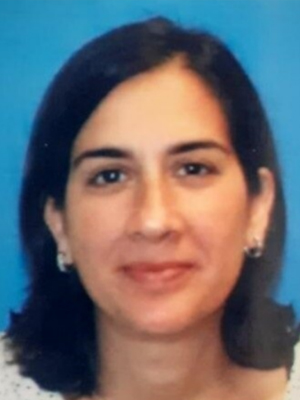 |
Dr. Paloma Ordóñez-Morán
University of Nottingham
Biography
Dr. Paloma Ordóñez-Morán is an Associate Professor at the Centre for Cancer Sciences, School of Medicine, University of Nottingham, UK. She obtained her BSc in Biochemistry from the University Complutense of Madrid and after she completed her PhD at the Biochemistry Department, School of Medicine, University Autonomous of Madrid, Spain. Following her doctoral studies, she pursued postdoctoral research in the laboratory of Prof. Joerg Huelsken at the Swiss Institute for Experimental Cancer Research (ISREC), École Polytechnique Fédérale de Lausanne (EPFL), Switzerland, where she focused on cancer biology, tumour microenvironment interactions and stem cell biology. In July 2019, Dr. Ordóñez-Morán joined the University of Nottingham as an Assistant Professor, and in 2024, she was promoted to Associate Professor. She further expanded her expertise in computational biology by completing an MRes in Bioinformatics at the University of Nottingham in 2022. She is actively involved in teaching and mentoring in Cancer Sciences degree at the School of Medicine, University of Nottingham, and supervising PhD and MSc students in cancer biology, inflammation, bioinformatics, and organoid-based models.
|
 |
Prof. Matthew Loose
University of Nottingham
Biography
Professor Loose trained as a developmental biologist and developed an interest in sequencing technologies and methods enabling a deeper understanding of genomes from well studies as well as non-model organisms. This led to the development of novel methods of nanopore sequencing including adaptive sampling and ultra long reads.
|
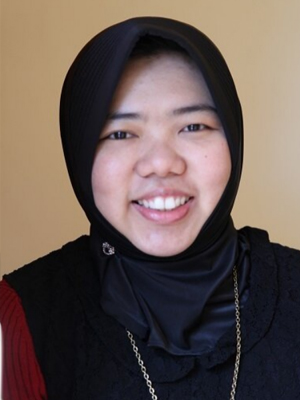 |
Dr. Susanti Susanti
University of Glasgow
Biography
Dr. Susanti is a trained pharmacist graduated from Universitas Gadjah Mada in Jogjakarta, Indonesia. She obtained a M. Phil from The John Curtin School of Medical Research at the Australian National University in Canberra, Australia. She finished her PhD in Molecular Pathology Group, School of Medicine, University of Nottingham. She then continued doing research in the same group in Nottingham as a Postdoctoral Research Fellow. She is now a researcher in Cancer Research UK Beatson Institute in Glasgow, under mentorship of Prof. Owen Sansom. Her current research focuses on stem cell niche in early progression of colorectal cancer and biological mechanism of early onset colorectal cancer. In early 2021, She combined her scientific knowledge and skills with her personal experience as cancer survivor to found PathGen Diagnostic Technology, a start-up which focuses on utilising low-cost technology for molecular genotyping to guide the care of cancer (and other diseases) in resource-limited countries such as Indonesia. She has won numerous awards including Vice Chancelor Award from University of Nottingham, Innovator Award for Pharmaceutical and Medical Device 2022 from Indonesia Ministry of Health and Early Career Entrepreneur of the Year 2022 from Cancer Research Horizon UK.
|
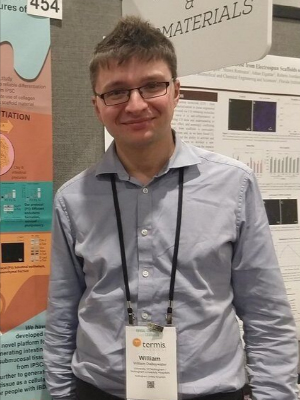 |
Dr. William Dalleywater
University of Nottingham UK
Nottingham University Hospitals
Biography
Dr. William Dalleywater is a histopathologist and alongside clinical training completed an MRC clinical research training fellowship. During this fellowship, he worked on developing a method aimed at rapidly generating intestinal cell populations from induced pluripotent stem cells. This approach holds promise for applications in regenerative medicine and modeling intestinal biology. Currently, as an academic clinical lecturer, he is engaged in ongoing research, collaborating with tissue engineers and materials scientists to further refine these methods for potential clinical translation. Additionally, he is using this model to study intercellular interactions within the complex context of the intestinal microenvironment, using a combination of in vitro and in vivo models with computational modelling of sequencing data.
|
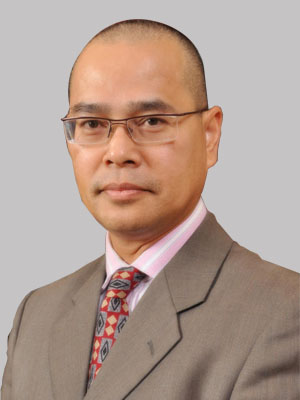 |
Dr. Matin Mellor
Subang Jaya Medical Centre, Subang Jaya
|
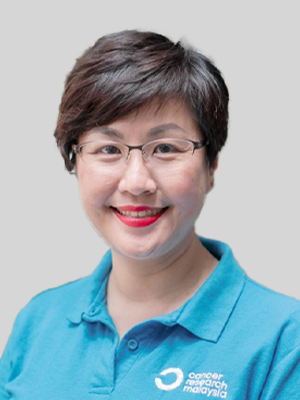 |
Prof Cheong Sok Ching
Cancer Research Malaysia
Biography
Professor Cheong is the Chief Scientific Officer at Cancer Research Malaysia. She is also an Adjunct Professor at the Faculty of Dentistry, University of Malaya. Her work aims to improve management and survival of cancer patients through the understanding of the underlying molecular changes, and through the development of novel treatment approaches, focusing on head and neck cancers. Her work includes the development of immunotherapy and the use CRISPR-Cas9 essential screens to identify novel targets for head and neck cancer. In addition, she also focuses on early detection using innovative strategies including the development of novel mobile health tools such as MeMoSA®, enabling early detection of oral cancer. She has received grants from national and international funding bodies including the Newton-Ungku Omar Fund, Newton Fund Impact Scheme, Global Challenges Research Fund and the Ministry of Science, Technology and Innovation SMART Fund, amongst others. In recognition of her research contributions, she has received several national and international scientific awards, including the President’s Award by the International Association of Oral Maxillofacial Pathologist (IAOP), the 8th Underwriters Laboratories-ASEAN-US Science Prize for Women 2022 and The World Academy of Sciences (TWAS) Medal Lecture.
|
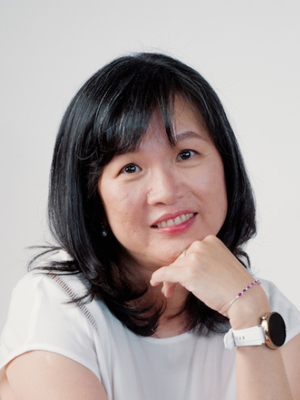 |
Professor Datin Paduka Dr Teo Soo Hwang OBE
University Malaya
Biography
Datin Paduka Prof Dr Teo OBE is a Cambridge-trained scientist, founder of Malaysia’s first and only non-profit cancer research organisation, and the only Malaysian to be conferred an Honorary Officer of the British Empire by Queen Elizabeth II for contributions to medical research. Datin Paduka Prof Teo is one of the top 3 most highly cited scientists in Medicine in Malaysia - her research has been published in top medical journals including New England Journal of Medicine, Nature, Nature Genetics etc. Under Datin Paduka Dr Teo’s leadership, Cancer Research Malaysia has accelerated its innovation pipeline, from cancer vaccines to AI powered digital health solutions, and expanded its scope from research to clinical services. She led the training of genetic counsellors and the integration of these services into both public and private hospitals, and enabled the spin-off of these services through the launch of Genetix, a wholly owned subsidiary bringing precision guidance to patients and their families. She conceptualised the patient navigation programme, and enabled its establishment in 4 public hospitals in Malaysia and its expansion into early detection of breast cancer in primary care systems. In her 20+ years tenure, she has nurtured and groomed young scientists across diverse fields from vaccine development, genetics, genomics, genetic counselling, clinical trials to patient navigation. Datin Paduka Prof Teo is passionate about the integration of technology to improve healthcare and championing scientific thinking and scientific solutions to help people and communities. She is the Chairman of the Medical and Health Sciences Discipline of the Academy of Sciences Malaysia, Fellow of the Malaysian Genome and Vaccine Institute, Adjunct Professor of University Malaya and has served on the Healthcare Whitepaper Advisory Council and the National Research University Advisory Council. She was awarded the Honorary Officer of the British Empire by Queen Elizabeth II, and the DSIS Award from HRH Sultan of Selangor, and recognised as a Distinguished Alumni of the Department of Biochemistry at the University of Cambridge, where she obtained both her MA and PhD.
|
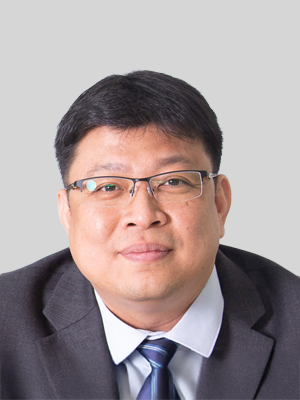 |
Prof Leong Chee Onn
AGTC Genomics Sdn. Bhd.
Biography
Prof Leong's work concerns the discovery and validation of biomarkers for multi-cancer early detection through a comprehensive multiomics approach. His active involvement in The Cancer Genome Atlas project (TCGA) has led to the development of highly sensitive, specific, and clinically validated genomics tests for early cancer detection, prediction of drug response, and monitoring of cancer relapse. Moreover, his research focuses on identifying cancer markers for immunotherapy and targeted therapy, aiming to enhance personalized treatment strategies. His team is actively engaged in collaborating with global clinical and research studies, actively developing multiomics NGS technology for cancer research, uncovering and validating biomarkers for cancer diagnosis. His success in defining novel cancer driver mutations provides new therapeutic possibilities for a variety of treatment-refractory malignancies. He is currently developing high-throughput approaches to identify specific therapeutic targets within the critical pathways we have uncovered. Through collaborations with academic and industry partners, he seeks to rapidly develop and test the new treatments that may emerge based on his basic science discoveries.
|